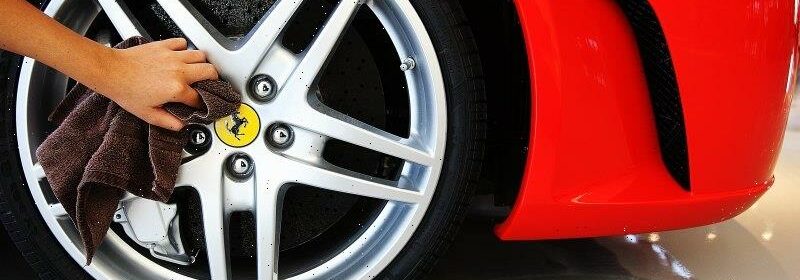EU wants luxury car tax to go in ‘give and take’ on trade deal

Key points
- The EU is keen to see the luxury car tax go in the “give and take” of free trade negotiations.
- Australia’s automotive industry peak body has suggested it could be scrapped in exchange for better market access for agricultural industries.
- But Trade Minister Don Farrell says at this stage, Australia isn’t prepared to change its taxation arrangements.
- The tax earned the federal government an estimated $880 million in 2021-22.
Scrapping the $880 million luxury car tax could help Australian meat, rice and sugar producers secure greater access to important European Union markets as negotiations over a free trade agreement enter their final months.
Australia’s automotive industry peak body says the country should scrap the tax in exchange for better market access for agricultural industries while one of the EU’s top trade negotiators, Bernd Lange, says the bloc is keen to see the tax go in the “give and take” of negotiations.
The bloc hopes to finalise a free trade deal by early next year.
“We are producing wonderful cars and in Australia, we have this luxury tax on cars, so let’s see,” said Lange, who chairs the European Parliament’s committee on international trade.
Trade Minister Don Farrell said each side was entitled to put items on the negotiating agenda.
“I’m sure the luxury car tax is one. At this stage, we’re not prepared to change our taxation arrangements in Australia. But all of these issues will be subject to discussion,” he said.
The luxury car tax applies to cars valued above $71,849 including GST, or $84,916 for fuel-efficient and zero-emission vehicles, at a rate of 33¢ for each dollar above that threshold. It earned the federal government an estimated $880 million in 2021-22.
German-Australian Chamber of Industry and Commerce executive director Dr Gabriele Rose said the tax made it less attractive for Australians to buy vehicles priced above the threshold, and difficult for manufacturers to offer their latest innovations.
The chamber wants the luxury car tax removed either as part of the free trade agreement or in a “side agreement” between the bloc and Australia.
“In its current form, the [luxury car tax] is neither efficient nor simple to administer. We think that it has no economic merit,” Rose said.
Federal Chamber of Automotive Industries chief executive Tony Weber said scrapping the tax would give Australia more negotiating room, opening up opportunities for sectors such as agriculture to gain better European market access.
“With a bit of vision, we can have a win-win scenario where Australian motorists are better off, Australian farmers are better off, and we have higher GDP in Australia and higher GDP in Europe,” he said.
The luxury car tax does not just apply to European makers. Weber noted that Toyota owners were the largest payers of the tax because of higher-priced vehicles such as the LandCruiser.
However, European manufacturers also face a 5 per cent tariff on their vehicles, unlike car makers in countries including Japan, Korea and the United States with which Australia has free trade agreements.
A German-made BMW iX electric SUV has a base price of nearly $113,000, which includes the 5 per cent tariff paid by the manufacturer of about $5000 to $6000, and Australian buyers then need to add about $12,000 in GST. After GST is counted, nearly $14,500 in luxury car tax is added – taking it to a total of roughly $139,500, before stamp duty and registration.
By contrast, the Korean-made Genesis GV60 starts at a base of about $99,400, including GST, and does not come with a 5 per cent tariff. The luxury car tax for that electric SUV is about $5200, taking its price tag to about $104,600 before stamp duty and registration.
Rose said the luxury car tax was a “further disincentive” for greater adoption of electric vehicles in Australia, given there were family-sized EVs priced above the threshold.
A government move to provide further incentives for emission-efficient vehicles by scrapping tariffs on cars valued under $85,000 faces a fight from the crossbench and the Coalition over the estimated $4.5 billion cost of the scheme over 10 years.
Rose said the chamber was following developments closely.
”[We] think that a range of support measures is appropriate in order to achieve stronger uptake of electric vehicles in Australia,” she said. “This will also be an incentive for German and other car manufacturers to offer a wider range of electric vehicles to Australian car buyers.”
Cut through the noise of federal politics with news, views and expert analysis from Jacqueline Maley. Subscribers can sign up to our weekly Inside Politics newsletter here.
Most Viewed in Politics
From our partners
Source: Read Full Article